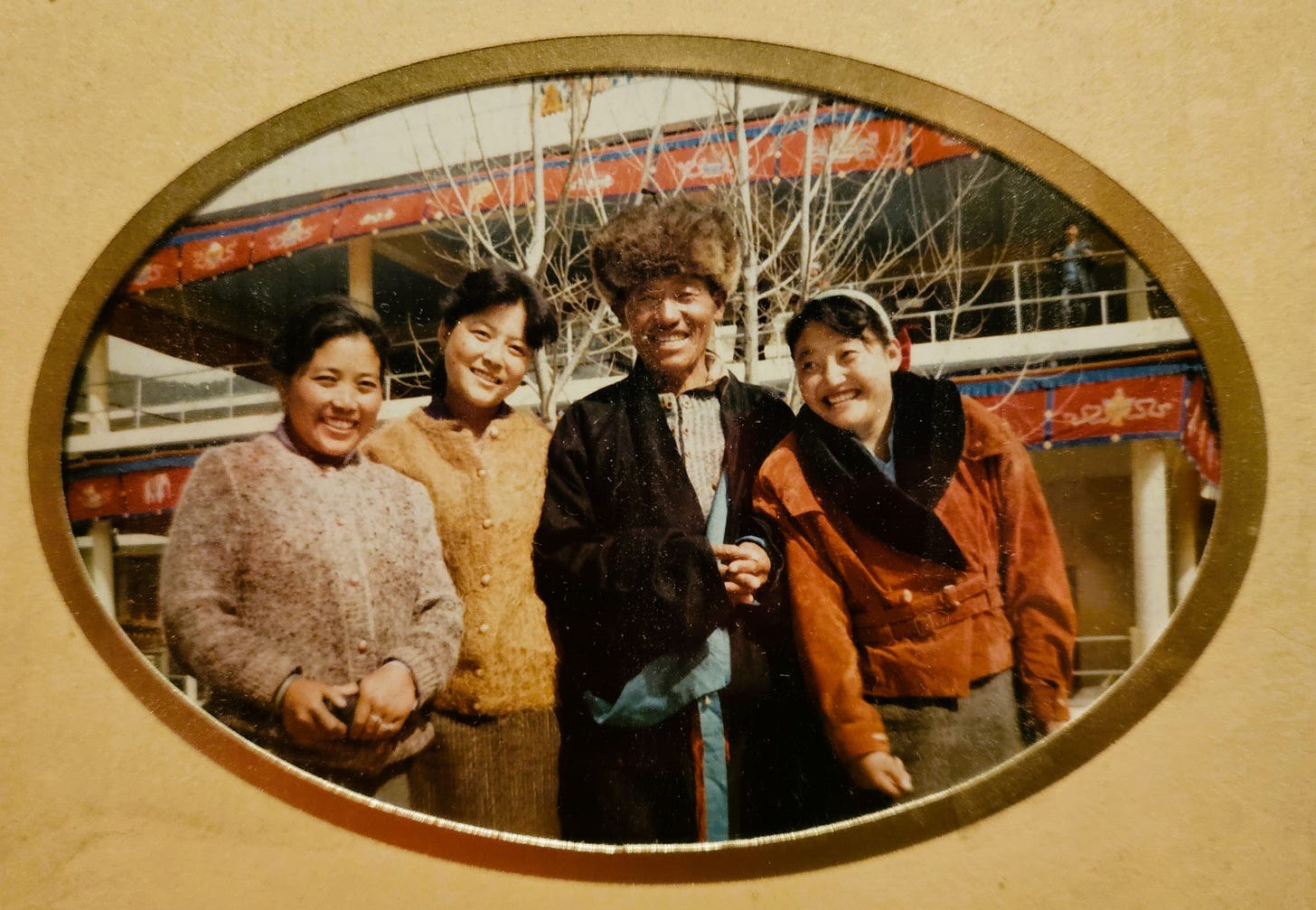I’d returned from India about a year earlier and had made no meaningful progress on turning my journal notes into the book that I’d intended to create.
Instead of knuckling down to work, I’d become overly involved in the Tibetan-American Resettlement Project, particularly in helping one special friend, Tsering Yangkyi. Her goal was to establish herself and prepare the way for her husband and children to follow after she attained citizenship. I have always had a soft spot for immigrants, people who pull up roots and move halfway around the world to start over. It takes incredible courage and grit. Yangkyi had very little education or knowledge of the United States. She, her husband, and two children, living in a single room in a refugee settlement, drawing their water from a community spigot, had no realistic prospects for upward mobility if they stayed there. She wanted to make a better life for her two children and believed that coming to the United States would achieve that. She was heroic. By extension, I believed the same about the other people who came as part of the program. I wanted to help, but—as I said—I became overly involved.
I received daily phone calls to take this Tibetan refugee or that to medical appointments or for a ride to or from English class or work. The April after I’d moved into the apartment I even found myself helping people file income taxes. I was on call, simply from my own unspoken willingness to be on call and learned that I was known as Tibetan Taxi. It was not an especially complimentary nickname because it meant that I was a guy seen as having nothing better to do. Too easy a touch to be respected, I fear. One call I remember with less than fondness came from a woman who desperately needed a ride late one cold evening.
“Steve-la,” she begged, “it’s an emergency. My sister-cousin, she needs me. She’s sick.”
I said yes, of course, and jumped into my car to rescue her, even ready to find a late night pharmacy if need be. But the ride turned out to be what would have been an easy walk of four blocks, and my desperate friend melted out of the car and made a straight shot for the building before I could ask what her relative’s symptoms were. I later learned the trip was actually to see her boyfriend, not her sick sister-cousin.
Another time I found myself with four passengers squeezed into the back seat of my Honda Civic and a fifth next to me in the front seat giving directions. Trouble was, he didn’t know where we were going any more than I did. This sort of ride would have been a lark and an adventure if I were a teenager, but of course… I was not pleased.
But my Tibetan friends had a right to be a bit giddy. They were all working two or three jobs at once and living together with four and sometimes five friends. All were saving money to later bring husbands or wives or children to join them. As annoying as the chaos their many needs caused me, I loved hanging out with them and doing my best to explain America to them. Someone was always cooking or making tea, serving me as if I were a king, boosting my sense of my own importance.
The little dumplings called momo were always the meal of choice. Someone would put a big wooden cutting board on the floor and we’d sit around it folding the raw dough around clumps of ground beef and diced onion. My friends were expert at folding the dough into all sorts of attractive designs. Me? Not so much. When the momos were set into the basket to be steamed, my sad efforts were steamed also but then set aside fit only for me. The women chattered away in Tibetan, bursting into laughter now and then at the mention of my name as they glanced over at my sad little momos.
“What did she say?” I always asked, already knowing what the answer would be.
“She said Steve is very handsome,” came the usual bullshit answer—which got another round of laughter.
I shrugged my shoulders and ate my deformed dumplings.
Sometimes on weekend nights Yangkyi and her three roommates came over to the Loring Park apartment, and we’d order a pizza and watch a Hindi movie. These were invariably full of absurd car chases and gun fights that could just as easily turn into massive song and dance sequences. Lovers would suddenly break into song, magically transmitted to alpine Kashmiri meadows, and then, just as suddenly, some great sadness might befall them, and my four friends would be soaked in tears.
“Time to get the mop out!” I’d say. “You’re getting the floor wet!”
It was all great fun.
Instead of recognizing my over-involvement, though, I dug in deeper. I created a slide show and a talk to give to community groups about the resettlement project. I spoke to Rotary clubs, church committees, a group of Benedictine nuns, and even gave the Sunday message at a Unitarian church one week. It took me a long time to learn to say no to anyone but Yangkyi. I had pledged to help while still in India and never minded doing her a favor.
But I still had that little book to write.



